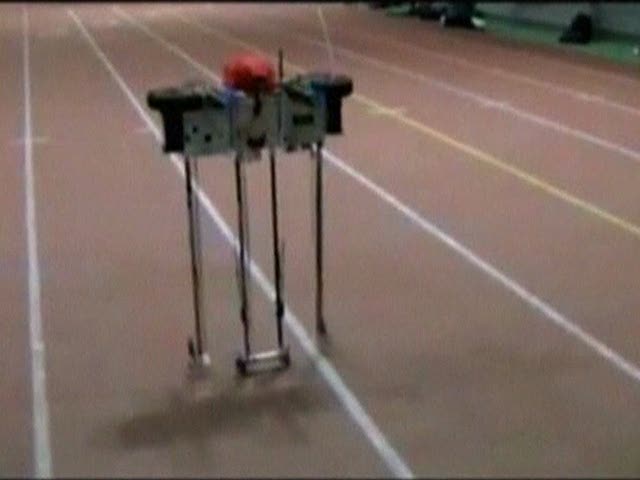Plans to introduce identity cards in Britain may be premature
Published:
29 July 2004 y., Thursday
Plans to introduce identity cards in Britain may be premature because the technology may not be up to the task, a panel of experts has concluded.
Overall, the scheme is likely to be a positive step for society, and should go ahead, the researchers argue.
But they think the technology could potentially be abused and would be ineffective in some cases.
The UK government is conducting small-scale trials, and hopes to begin phasing in ID cards in the next decade.
They would involve physical information being taken from each of the 60 million people living in Britain.
This "biometric" information would take the form of an iris scan, fingerprint or facial scan.
It would then be stored on a microchip embedded within the card.
When presenting the card, the information would be checked against a national repository, or database.
Šaltinis:
BBC News
Copying, publishing, announcing any information from the News.lt portal without written permission of News.lt editorial office is prohibited.
The most popular articles

The European Commission announced today the award of three of the six contracts for the procurement of Galileo’s initial operational capability.
more »
 In a world first, doctors in Austria have amputated the arms of two young men and replaced them with bionic prosthetics. The decision to amputate was made after the men had irreversibly lost all movement in their hands.
more »
In a world first, doctors in Austria have amputated the arms of two young men and replaced them with bionic prosthetics. The decision to amputate was made after the men had irreversibly lost all movement in their hands.
more »
 An ultra-realistic robot, known as a geminoid, is helping psychologists test how we relate to machines...
more »
An ultra-realistic robot, known as a geminoid, is helping psychologists test how we relate to machines...
more »
 Scientists from the University of Sheffield have developed pigment-free, intensely coloured polymer materials, which could provide new, anti-counterfeit devices on passports or banknotes due to their difficulty to copy.
more »
Scientists from the University of Sheffield have developed pigment-free, intensely coloured polymer materials, which could provide new, anti-counterfeit devices on passports or banknotes due to their difficulty to copy.
more »
 iRobot Corp announced plans to create Android applications for the iRobot Ava mobile robotics platform.
more »
iRobot Corp announced plans to create Android applications for the iRobot Ava mobile robotics platform.
more »
 When robots talk to each other, they're not generally using language as we think of it, with words to communicate both concrete and abstract concepts.
more »
When robots talk to each other, they're not generally using language as we think of it, with words to communicate both concrete and abstract concepts.
more »
 Using laser and nanotechnology, scientists in Chicago have been able go back in time and uncover how masterpieces from artists like Homer and Van Gogh might have looked like when they were first painted.
more »
Using laser and nanotechnology, scientists in Chicago have been able go back in time and uncover how masterpieces from artists like Homer and Van Gogh might have looked like when they were first painted.
more »
 Most mechanical resonators damp (slow down) in a well-understood linear manner, but ground-breaking work by Prof. A. Bachtold and his research group at the Catalan Institute of Nanotechnology has shown that resonators formed from nanoscale graphene and carbon nanotubes exhibit nonlinear damping, opening up exciting possibilities for super-sensitive detectors of force or mass.
more »
Most mechanical resonators damp (slow down) in a well-understood linear manner, but ground-breaking work by Prof. A. Bachtold and his research group at the Catalan Institute of Nanotechnology has shown that resonators formed from nanoscale graphene and carbon nanotubes exhibit nonlinear damping, opening up exciting possibilities for super-sensitive detectors of force or mass.
more »
 Automated driving systems, such as adaptive cruise control, may be the latest "must have" gizmos but the auto industry is already looking to their successor - cooperative driving - where cars communicate with each other as they go.
more »
Automated driving systems, such as adaptive cruise control, may be the latest "must have" gizmos but the auto industry is already looking to their successor - cooperative driving - where cars communicate with each other as they go.
more »
 For the past few years, researchers have been using quantum dots to increase the light absorption and overall efficiency of solar cells.
more »
For the past few years, researchers have been using quantum dots to increase the light absorption and overall efficiency of solar cells.
more »
 'Ranger' the robot has set a world record for its developers at Cornell University, by walking 40.5 miles non-stop on one charge.
more »
'Ranger' the robot has set a world record for its developers at Cornell University, by walking 40.5 miles non-stop on one charge.
more »